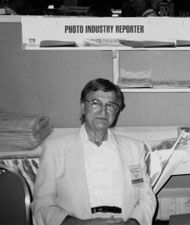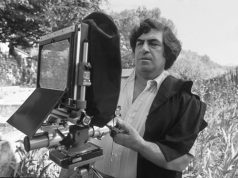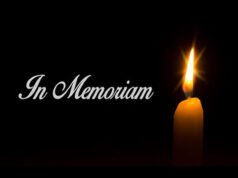
Rudolf Maschke, the last of the independents, died in mid-September at 88. He and Ed Wagner owned and operated PTN Publishing Company from 1963 to 1987; they were the publishers and editorial directors of Photographic Trade News, Studio Photography and Technical Photography, among other titles, and the originators of the photo show daily newspapers. In 1992 they cofounded Photo Industry Reporter.
I was an editor at PTN Publishing for seven years, six of them for Rudy Maschke, and I freelanced for the partners when they started Photo Reporter.
In the publishing world of Rudy Maschke there were no formal meetings, no policy manuals, no focus groups, no reader surveys. There was only the Great Maschke, as he from time to time would call himself—half joking—as in, “I, the Great Maschke, will solve your problem.” If you had an idea, he’d give you a decision on the spot. If he had an idea, he’d expect you to make it a reality.
His office door was almost always open, and if he were talking with someone or on the phone, he might hold up his hand to stop you, but more likely he’d wave you in. Sometimes he would shrug, which meant that whatever was going on would take a while and it was up to you if you wanted to wait it out in his office. He didn’t mind you listening in, and most of the time I wanted to be in there because I knew I’d learn something. Early on he told me, “Tanenbaum, if you’re willing to listen and learn, I’ll open up everything to you. Everything except the books.”
I knew where I stood by the way he addressed me. If he said, “Tanenbaum, let me tell you something,” then something valuable, and often challenging, was coming my way. If he said, “Mr. Tanenbaum, let me tell you something,” it meant he was going to make an important, direct point. If he said, “Chief, let me tell you something,” then I was in trouble. I’d overstepped, and he was about to remind me there was but one chief, and it wasn’t me.
And if he called me “Junior” or “Sonny”—don’t ask.
I met Rudy Maschke in the summer of 1970. He didn’t like me.
I’d been hired by Ed Wagner to be associate editor of Photographic Trade News. The problem was, I’d been hired while Mr. Maschke was on vacation (and to me he was always “Mr. Maschke,” just as his partner was always “Mr. Wagner”), and although Photographic Trade News was a magazine controlled primarily by Ed Wagner, Rudy Maschke wanted—needed—to have a hand in everything that went on at PTN Publishing.
He also didn’t like that every time he noticed me I seemed to be standing around with my hands in my pockets, doing nothing. Years later he told me, “Tanenbaum, I couldn’t figure out what you were doing. You never seemed to work.”
What I was doing was learning. I got my work done quickly and then I’d walk around, ask questions of editors, the art director, the production manager; I’d go through back issues of the magazines. But to Mr. Maschke I was a goof-off who was stealing the salary he paid me.
So he sent me to the basement. PTN was soon to move from New York City to Hempstead, Long Island, and one morning he said, “Junior, since you don’t seem to be busy, for the next two or three days, why don’t you show up in jeans and a sweatshirt and go down into the basement and pack up some boxes? I’m sure you can fit that into your schedule.”
“Okay,” I said, and for the next three days I packed, labeled, sealed and stacked. I didn’t know it then, but I’d passed a test. I’d done what was necessary; no questions asked, no excuses, no hesitation. I didn’t say, or even think, hey, wait a minute, I’m an editor, not a stock boy.
A year later Rudy Maschke made me editor of Studio Photography, working directly for him.
He could be tough, demanding, even intimidating, but he was brilliant and quick and decisive; he knew exactly what he wanted, and I understood right away that what he respected and valued was the person who would do whatever was necessary: come in early, stay late, work the weekend, take the work home; the person who would keep on learning what he had to teach. And the person who would go down to the basement.
“Tanenbaum,” he said, “I can find any number of people who will tell me why they can’t do something, or why it can’t even be done or shouldn’t be done or has never been done. What I’m looking for is the one person who says, ‘I’ll do it.’ ”
I think Rudy Maschke expected a lot from others because of how far he’d come and what he’d experienced along the way. He came alone to the United States from Germany in 1938, finished high school, graduated from college and served in the Navy; he was on Omaha Beach on D-day. He went to graduate school, then got into publishing and eventually became publisher of U.S. Camera. In 1963 he bought Photographic Trade News, and then he and Ed Wagner built it into the leading trade magazine for photo retailers while they made it the cornerstone of a vital publishing company.
They were perhaps the perfect partners. They complemented each other and respected each other’s strengths, but they didn’t always agree, and their styles were vastly different. Mr. Wagner would assume you knew what you were doing, and he’d get involved only if he found out otherwise. Mr. Maschke believed that you either knew nothing or whatever you did know was wrong, and he’d be involved with your every move until you showed him he didn’t have to be. He wouldn’t give you independence and authority; you had to earn it. The great thing about him—and he knew this—was that he gave everyone a chance to earn it. And once he believed in you, he would open every door and back you to the limit.
He often joked about being remembered as the richest, the smartest, the toughest in the business, but more than once I think he got to what he really wanted: “You know, Tanenbaum, maybe a few people will say, ‘That Maschke, he taught me something.’ ”
When I left PTN Publishing I went on to other magazines, both trade and consumer; today I’m a freelance writer and editor. During all that time there hasn’t been a day that I haven’t used something I learned from Rudy Maschke.
I have maybe 20 or 30 Rudy Maschke stories, but I’ll tell you just one more.
Late one afternoon I was in his office talking with him when one of PTN’s salesmen came to the door. Mr. Maschke waved him in. “Tanenbaum,” he said, “let me take care of this gentlemen—he makes money for me.” I started to get up, but he waved me back.
The salesman, who’s name I can’t remember but I’ll call Roger, gave a quick rundown of his itinerary for the next day—where he’d be going in the city and who he’d be calling on. Mr. Maschke interrupted him. “You’ll be near Lexington Avenue? Good, here,” he said, opening his desk drawer and taking out a slip of paper. “Can you do me a favor? I left a pair of shoes for repair at this place on Lexington. They’ll be ready. Would you pick them up for me?”
Roger said, “Rudy, I’ll be in the middle of my calls. I can’t be carrying a shoe box or a shopping bag. It’s not dignified.”
“Okay, that’s all right,” Mr. Maschke said. He put the receipt back in his drawer. Roger said goodnight and left.
Mr. Maschke looked at me and said nothing. I said nothing. But we both remembered the basement.
That Maschke, he taught me something.





